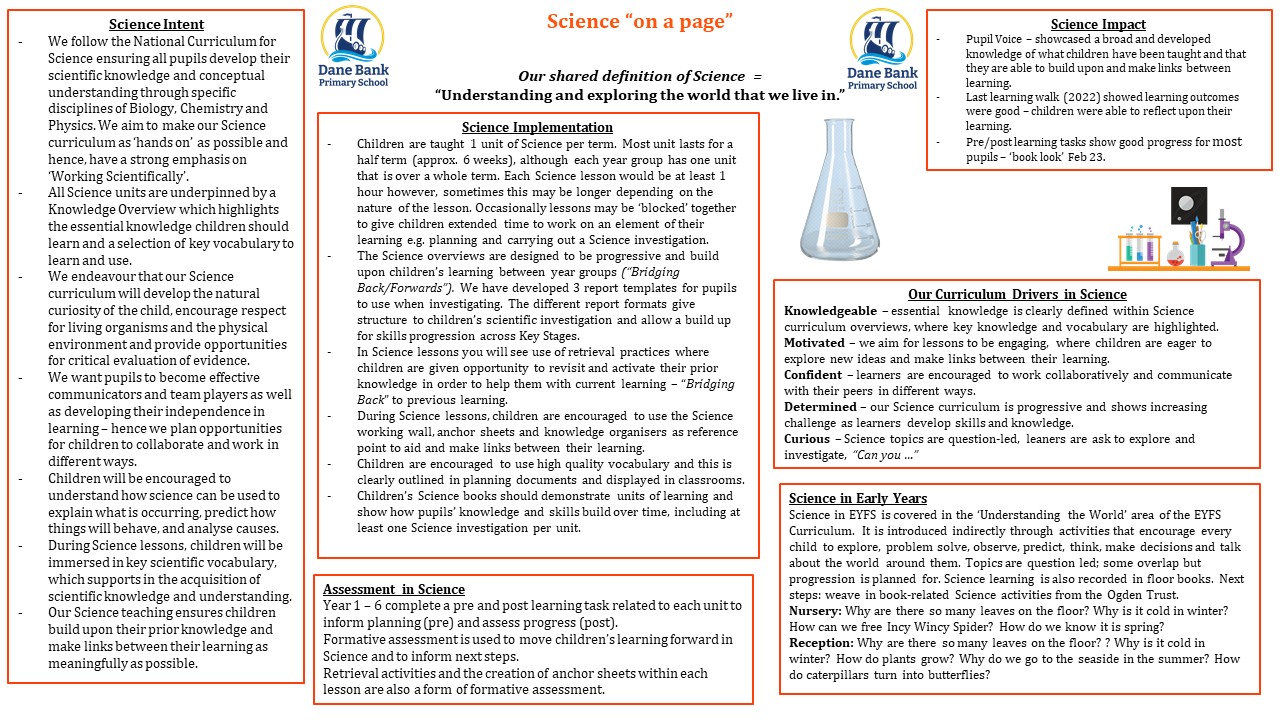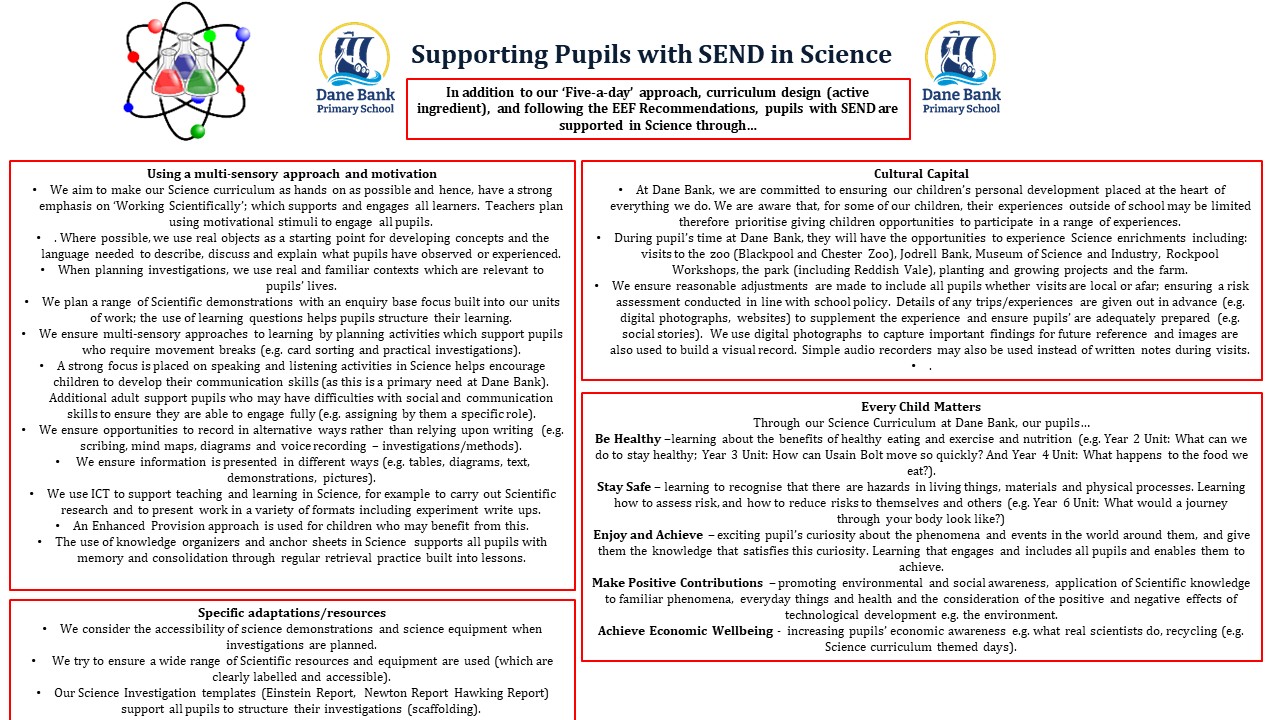Science
We follow the National Curriculum for Science ensuring all pupils develop their scientific knowledge and conceptual understanding through specific disciplines of Biology, Chemistry and Physics. We aim to make our Science curriculum as hands on as possible and hence, have a strong emphasis on ‘Working Scientifically’.
We have developed 3 report templates for pupils to use when investigating: The Einstein Report for Key Stage 1, The Newton Report for Years 3 and 4 and The Hawking Report for Years 5 and 6. The different report formats give structure to children’s scientific investigation and allow a build up for skills progression.
All Science units are based around a half termly question, such as – “Could we cope without electricity?” or “How does Usain Bolt move so quickly?” These questions give children a starting point from which to direct their learning.
Science "Subject on a Page"

Science Long Term Plan
Science Knowledge Overviews
Our Science Knowledge Overviews outline the key substantive knowledge planned within each unit:
Scientific Enquiry - Progression of Skills
scientific enquiry skills map dane bank primary 002 edited version.pdf







Science in Early Years
Science in the Early Years Foundation Stage is covered in the “Understanding the World” area of the EYFS Curriculum. It is introduced indirectly through activities that encourage every child to explore, problem solve, observe, predict, think about, make decisions and talk about the world around them.
During their first years at school children will explore creatures, plants, people and objects in their natural environments. They will observe and manipulate objects and materials to identify differences and similarities. They will also learn to use their senses, e.g. – feeling different materials and textures or listening to sounds in the environment. They will make observations of animals and plants and explain why some things occur – they will also talk about changes.
Children will be encouraged to ask questions about why things happen and how things work. They might do activities such as increasing the incline of a slope to observe how fast something travels, or opening a mechanical toy to see how it works. We provide opportunities for children to explore Science in the local community, taking advantage of the natural environment and engaging with relevant STEM initiatives.
Children will also be asked questions about what they think will happen to help them communication, plan, investigate, record and evaluate findings.
To see how Science is woven through our Early Years curriculum, please click here for Nursery and click here for Reception.
Our Early Years to Key Stage One "Bridging Documents" give an overview of how the Science curriculum "bridges" from the end of Nursery and Reception in to Year One.
bridging from early years in to year one science.pdf
Inclusion in Science

Oracy in Science
oracy in science curriculum.pdf
Science - Curriculum Impact
Primary Science – Information for Parent/Carer(s)
-
Parent and Carer Information Year 1 Science
download_for_offline
download_for_offlineParent and Carer Information Year 1 Science
- Parent and Carer Information Year 2 Science download_for_offline
download_for_offlineParent and Carer Information Year 2 Science
- Parent and Carer Information Year 3 Science download_for_offline
↑download_for_offlineParent and Carer Information Year 3 Science
- Parent and Carer Information Year 4 Science download_for_offline
download_for_offlineParent and Carer Information Year 4 Science
- Parent and Carer Information Year 5 Science download_for_offline
download_for_offlineParent and Carer Information Year 5 Science
- Parent and Carer Information Year 6 Science download_for_offline
×The Changing Lives in Collaboration (CLIC)
The Changing Lives in Collaboration (CLIC) Trust is a values-led Cooperative Multi-Academy Trust of four diverse primary schools in the North-West of England. Our core principle is that 'Together We Make The Difference' and our aim is to share our passion for education and learning, developing schools that make learning irresistible. We are committed to working in collaboration to improve outcomes for children. Our schools are unique and individual places where the curriculum and quality of education are tailored to the needs of the community.
Visit Site - Parent and Carer Information Year 2 Science download_for_offline

